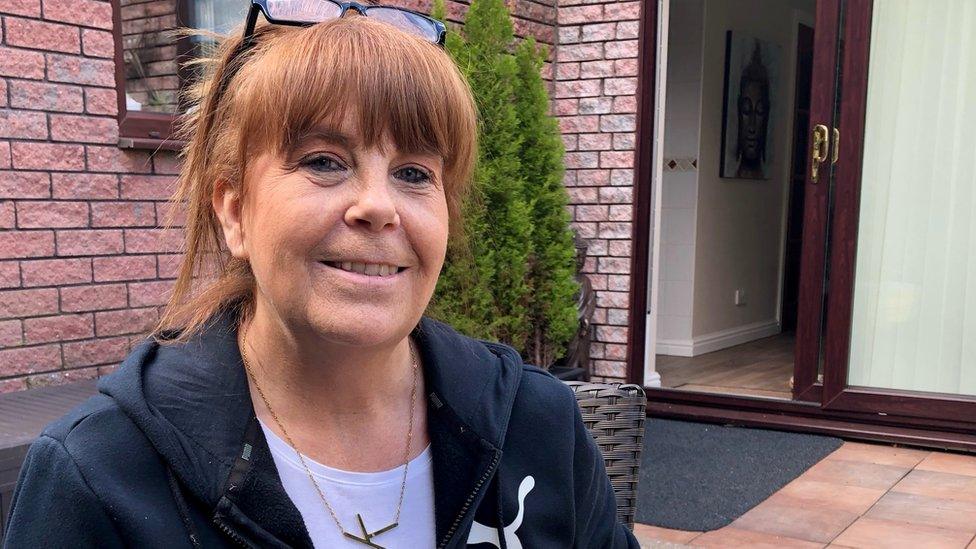Covid: Cancer worry as claims for end-of-life help rise in Wales
- Published
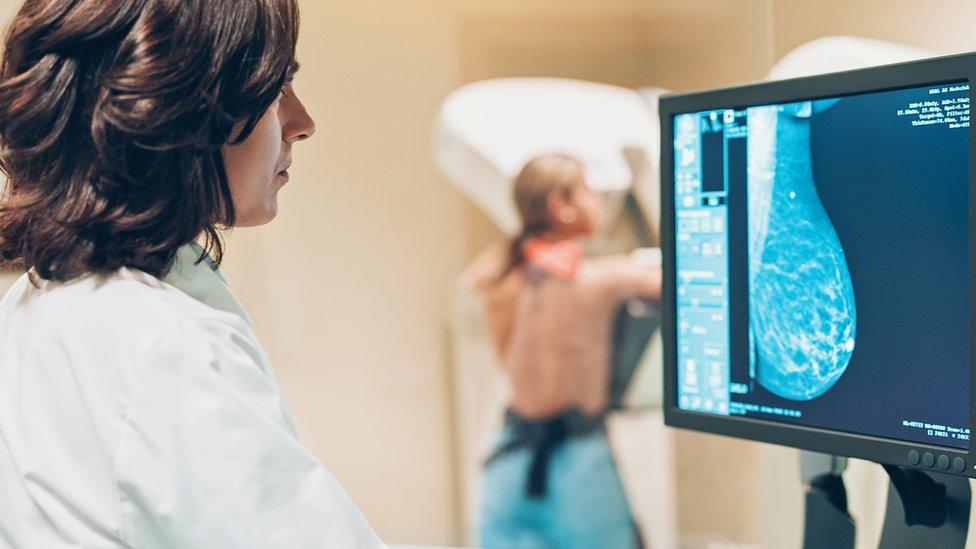
The Welsh government says it is investing in recovering cancer care
The number of terminally ill people accessing end-of-life benefits has increased during the pandemic, with a cancer charity warning of more evidence of a growing "cancer backlog".
Macmillan Cancer Support said people in Wales were being diagnosed with later-stage cancers.
It reported a 20% year-on-year increase in application forms for people who have less than six months to live.
The Welsh government said it was investing in recovering cancer care.
The Royal College of Radiologists (RCR) has warned patients could come to harm due a shortage of cancer specialists in Wales.
Macmillan's network of benefits advisers reported DS1500 applications, for the terminally ill, rose from 1,004 in 2019 to 1,204 in 2020 - a 20% increase.
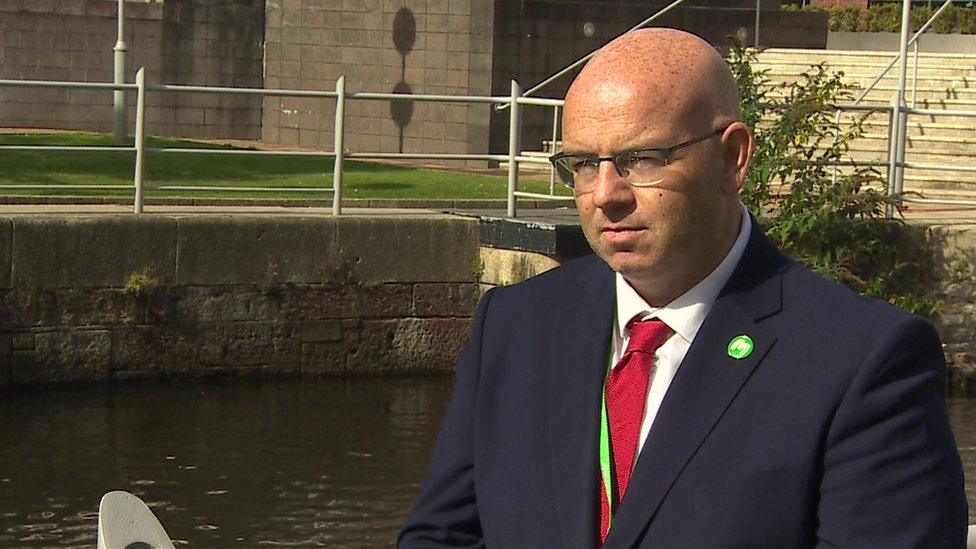
"We couldn't furlough cancer," says Richard Pugh, head of Macmillan Cancer Support in Wales
But thousands are thought to be missing from treatment services since the start of the Covid pandemic, either because they have been reluctant to get checked or have had trouble accessing services.
DS1500 referrals are made by oncologists confirming a patient has an incurable cancer and the forms unlock access to things such as housing benefits, universal credit and disability living allowance.
The charity, which has helped more than 7,400 people secure welfare support over the past year, said it was unusual to see so many DS1500 applications, calling the increase "worrying".
It said there could be a knock-on effect on end-of-life and palliative care services.
The latest NHS figures show fewer people started treatment in July within the 62 day target from the first suspicion of cancer.
Only 62% of people started treatment within that time but the target is 75%.
It is also down from 67% in the previous month.
'We couldn't furlough cancer'
Richard Pugh, head of Macmillan in Wales, said it had warned the Welsh government of a growing number of cases putting pressure on services.
"I hate to say we told you so but in this case we've been saying that this is the backlog that the government should worry about, that people with cancer haven't been coming forward and displaying symptoms, haven't been going to the GPs, and now it's too late for a lot of people," he said.
"We couldn't furlough cancer, it was still there, it's still a huge risk to people. We couldn't park that risk and unfortunately it is now displaying and this is a symptom of that backlog… this uptake of the DS1500 increase is showing that."
Seema Arif is a consultant oncologist at Velindre Cancer Centre in Cardiff and secretary of the RCR's standing Welsh committee.
She said patients' cancer "pathways" had been interrupted by the pandemic, leading to a negative effect on patients and their chances of survival.
"Essentially what that means is that they become palliative in terms of treatment and in terms of outcomes and these patients will be eligible for extra state benefits or financial benefits," she said.
"As a clinician on the ground, I am finding myself making more referrals for the DS1500 these days, compared to what I was doing maybe two, three years ago."
The RCR, which also represents clinical oncologists, has long expressed concern over a shortage of radiologists and cancer specialists, but said Wales now faced the worst workforce outlook of any of the UK nations, with nearly a third of clinical oncologists set to retire by 2025.
Its latest workforce census found the Welsh NHS needed 20% more oncologists and 38% more radiologists just to keep up with demand.
'Worrying'
Dr Arif said the staffing situation in Wales was already "very, very fragile" before coronavirus struck.
"It's worrying because patients can come to harm if there is less workforce, no matter the best will in the world if you don't have the workforce, you can't deliver," she said.
"The government can invest as much as it wishes into equipment and other things, but if you do not have a specialist to actually deliver that treatment or deliver those tests or to read those tests, for example, you can put in 10 CT scanners but if you don't have enough radiologists to read the scans then that's not going to help."
The RCR said the Welsh government should "think very hard" to find ways to improve the current workforce infrastructure, with Mr Pugh also calling on ministers to publish a "clear and transparent workforce plan".
In response the Welsh government said: "Cancer care has continued throughout the pandemic and we have published our approach to recovering NHS services, including cancer care, which has been backed by an extra £240m funding this year so far."
It said cancer services had treated more people within target time in July 2021 than in July 2020 and about 20% more people started treatment during the first six months of the year compared to the same period last year.
"We have supported a significant increase in the number of radiology training posts in recent years and last year we agreed additional training posts for oncology and related specialties," it added.
But Dr Arif said until Wales found a way forward it would continue to see negative cancer statistics.
"But that doesn't mean that we should stop trying - I think we should and I think we should start doing that today."

THE LONG WALK HOME: 20,000 miles, 4 years, 1 man
MOTHERS, MISSILES AND THE AMERICAN PRESIDENT: The story of Greenham told like never before

- Published20 March 2019
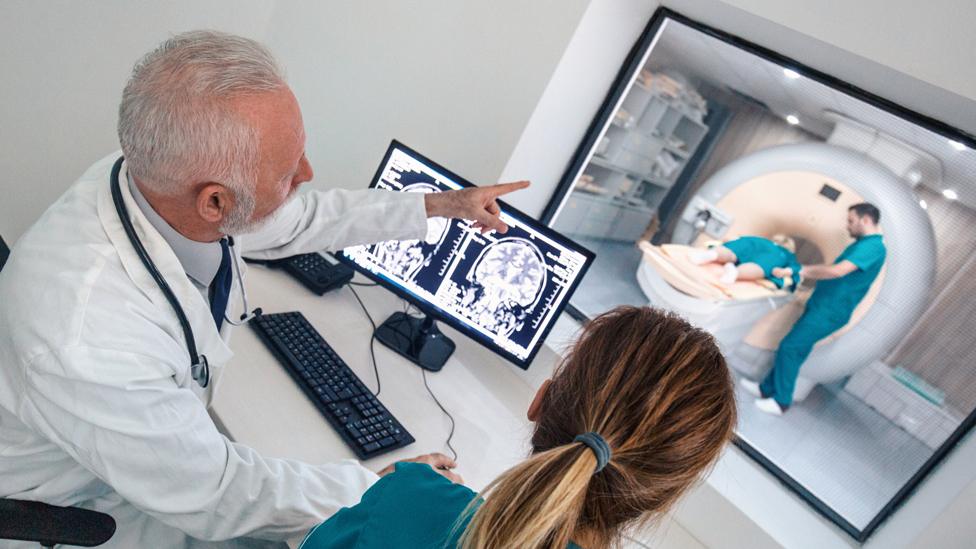
- Published23 September 2021
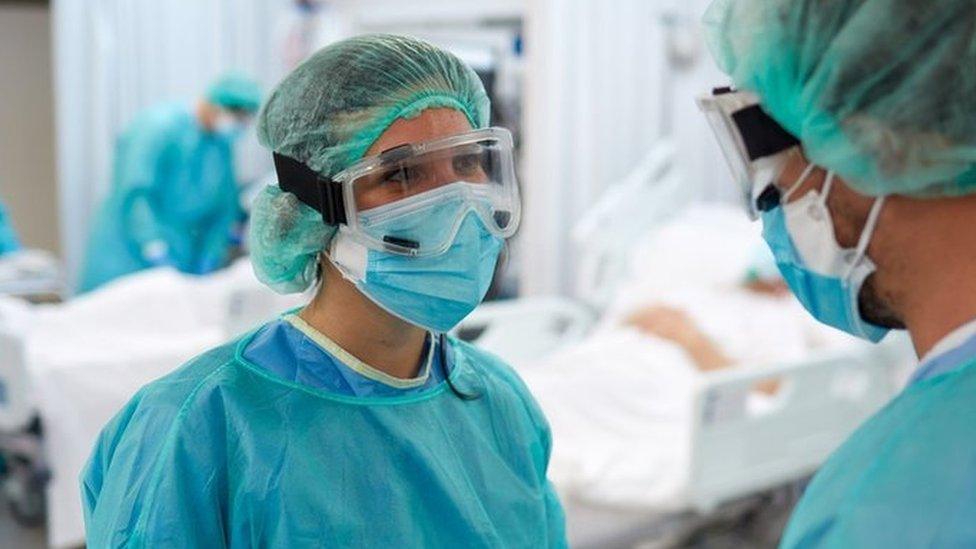
- Published23 September 2021
